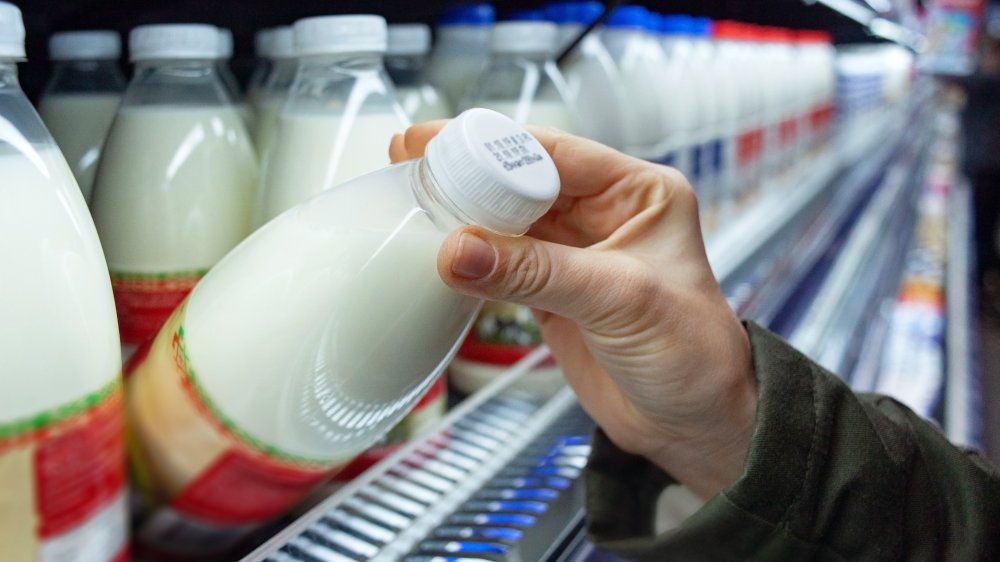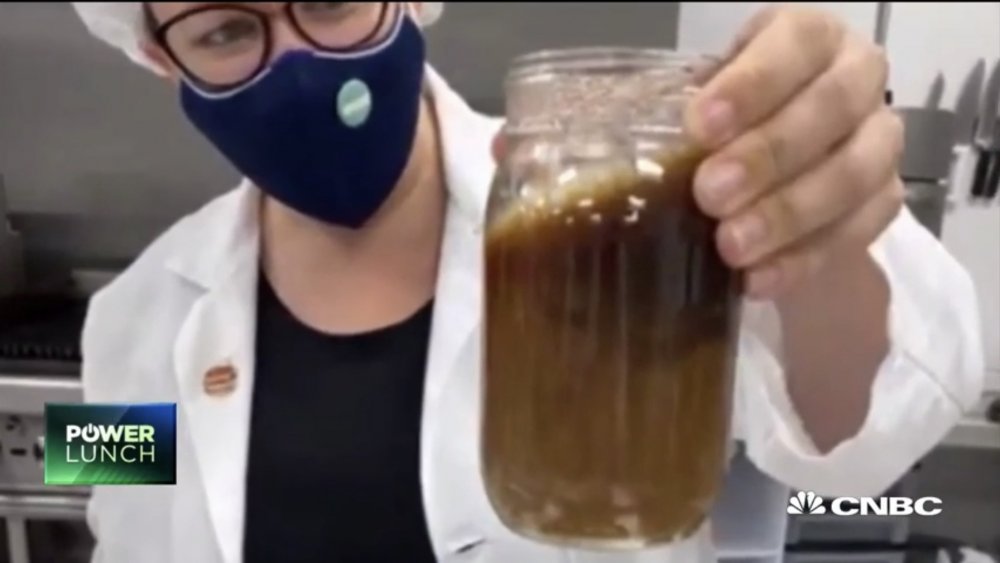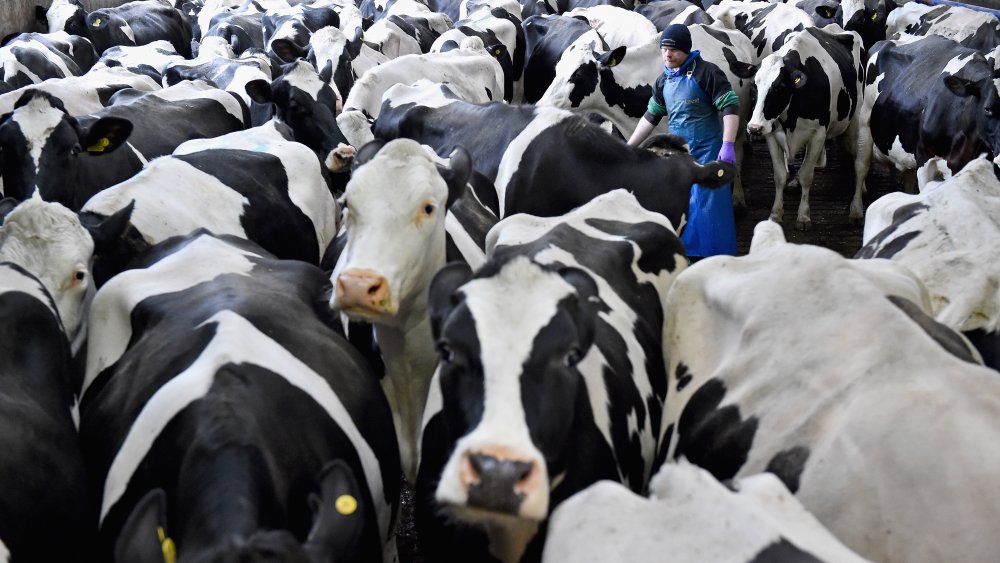Impossible Foods Is Working On A Vegan Substitute That Has Nothing To Do With Meat
Impossible Foods announced the next major step in its mission to transition cows from food to pets. The Silicon Valley company that gave us the Impossible Burger – a beef substitute that smells, tastes, and bleeds like real beef (via CNET) – just gave the media a video demonstration of something we might as well start calling Impossible Milk. As a report on CNBC explained, the demonstration showed that Impossible Milk behaves more like real milk when mixed with coffee, compared to the familiar non-dairy alternatives.
But does it do for cow's milk what the Impossible Burger does for ground beef? Does it taste and feel like milk? Is it safe for the lactose intolerant? Does it hold up as a mustache? We're still a ways off from seeing Impossible Milk on store shelves so we can judge for ourselves. News reports about Impossible Foods' new milk didn't say much about how the company makes the product-in-development. Gizmodo said only that Impossible Milk is made with plant protein. Consider the recent laboratory demonstration to be a mere sneak peek.
Dairy proteins can be made with genetically modified yeast
We know a lot more about how the company's Impossible Burgers are made. DNA from soybean plants is inserted into genetically modified yeast that is fermented so it creates a lot of heme – the molecule that gives meat its flavor (via Impossible Foods). Other companies working on what might be called "impossible cheese" use yeast or other microbes to produce casein and whey protein, similar to the Impossible Burger method (via The New York Times). Casein is the protein that makes mozzarella cheese stretchy. New Culture, a company that makes mozzarella with no help from cows, says their product performs well in taste tests.
As Impossible Foods CEO Pat Brown told the MIT Technology Review, the company wants to replace as many cow products as possible, with the direct goal of making animal agriculture obsolete. "Our mission is to completely replace the world's most destructive technology by far, which is the use of animals, by 2035," he said. The livestock industry is responsible for 14.5 percent of the world's greenhouse-gas emissions, and 61 percent of that comes from beef or dairy cows (via UN Food and Agriculture Organization). Greenhouse gases from human industries cause climate change. In addition to milk, Impossible Foods is working on a steak that is marbled with stuff that melts and tastes like fat. The company is working on chicken and fish substitutes, too.
Impossible Foods' CEO is not impressed with traditional non-dairy milks
Impossible Foods' CEO doesn't think that non-dairy alternatives to cow's milk are going to cut it. He personally can't stand the taste of soy milk (via CNBC). Oat milk, praised for its flavor and nutrition profile, just passed soy as the No. 2 non-dairy milk option on the market. Oat milk also scores much better in sustainability tests than the No. 1 non-dairy alternative, almond milk (via Food Dive). On the other hand, baristas give oat milk mixed reviews for taste and mouthfeel (via Barista Institute). And despite the environmental benefits of oat milk, Impossible Foods CEO Brown remains unimpressed with the whole non-dairy sector. If any of those milk alternatives were truly good, Brown said, people would have stopped buying real milk by now.
"If we have a cheaper, more delicious, healthier product for consumers, I am confident that most consumers in the world will choose it over the current product," Brown told MIT Technology Review. "And if no one is buying the products of animal agriculture, then there will be no incentive to keep covering the planet with cows." "Cattle will be pets," Brown added.


